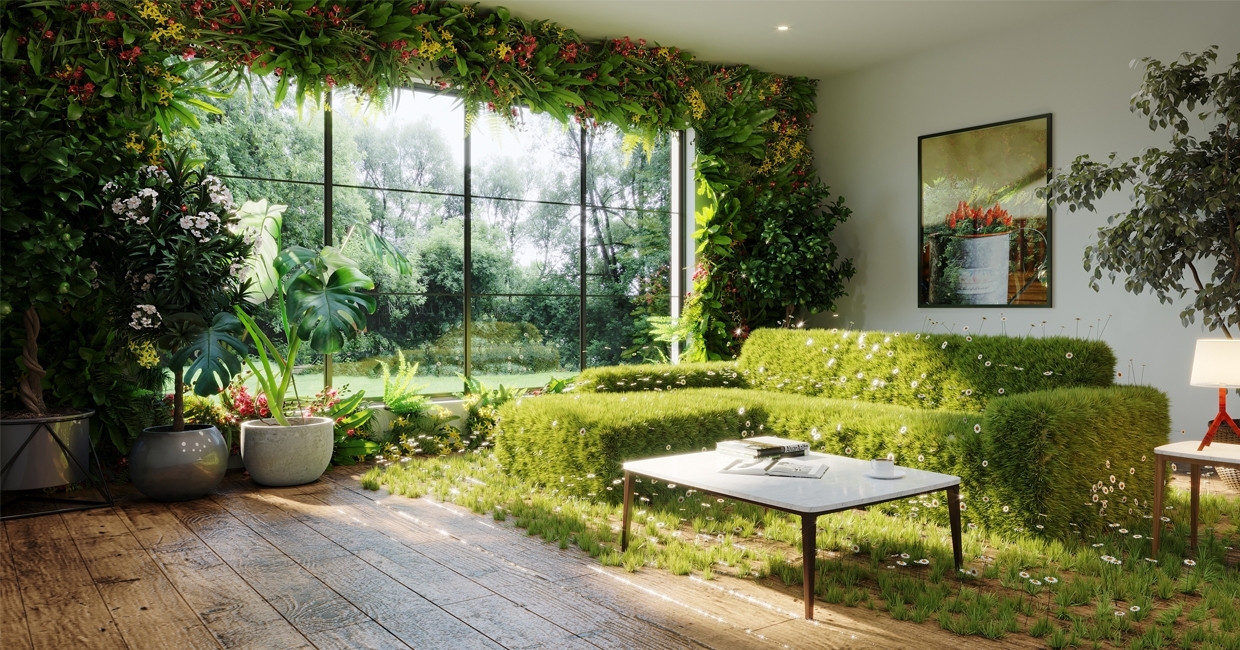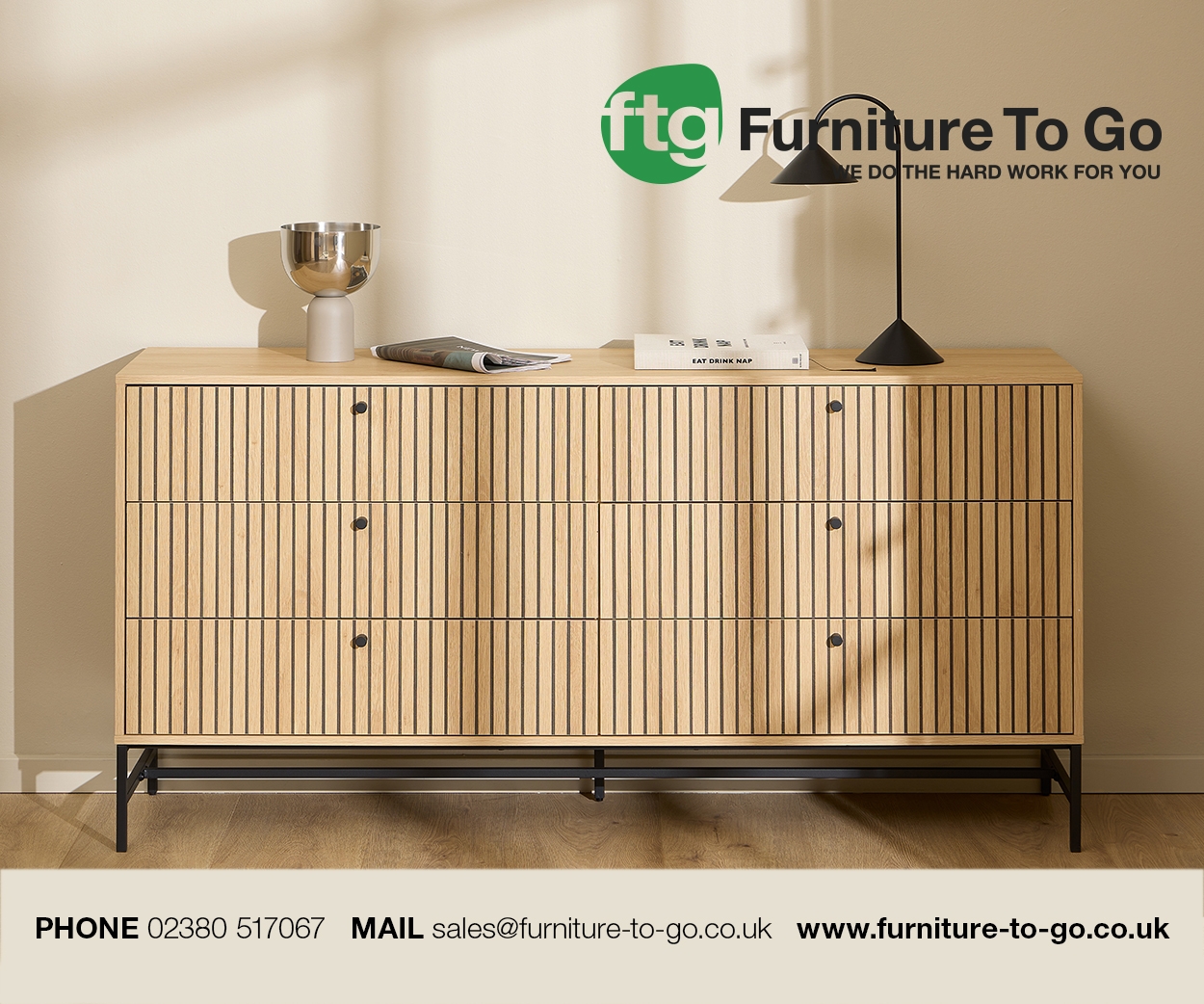The world is going green, reshaping consumer demand in a more conscientious and considered mould – and the upholstery sector is taking note, reports Paul Farley …
According to a new global report from The Economist Intelligence Unit, commissioned by the WWF, online searches for sustainable goods have risen +71% over the past five years, and demand from high-income nations, like ours, is particularly strong.
The environmental agenda has long coloured conversations around progress in the bed industry, and now the upholstery sector is sitting up and taking notice. Whether it is reflected in greener, leaner manufacturing operations, or the products themselves – frames made from accredited timber, eco-friendly fillings or covers made from recycled product – the hunt is on for more sustainably produced sofas and chairs that still manage to meet the high standards of comfort and durability for which their makers are known.
With foam prices on the rise, eco-friendly fillings evolving fast and a greater leaning towards locally made product, it is a pivotal moment for the pioneers in this field.
In November's Furntiure News, I put some of the big questions surrounding eco-conscious manufacture and marketing to: Suzy McMahon, buying director for Sofology, which now offers Loop, a flexible, sustainable upholstery rental service, and Virtue, a recyclable collection made from sustainably sourced materials; John O’Leary, the design director at sofa-in-a-box brand Swyft, which champions sustainable fabrics and frames, and works with World Land Trust to plant a tree for every sofa sold; Daniel Oscroft, sales director at Whitemeadow, the upholstery manufacturing giant which debuted its first eco-sofa range, Neptune, at 2020’s January Furniture Show; and Adam Green, project director at Habbio, a new brand that is made in the UK from 85% recycled or sustainably sourced materials, and purports to be “the world’s most sustainable sofa”.
Conscious of this growing market, yet striving to cut through the ‘greenwash’ and help make a palpable difference on the way consumers buy and dispose of their sofas, these businesses are helping spearhead the sustainable sofa movement – from design to delivery, and everything in between (and after).
I started the conversation by asking the panel why sustainability mattered in the upholstery sector …
Suzy MacMahon: Each year around 9 million tons of furniture, in addition to its packaging, goes to landfill, and with timber and leather sourcing often contributing to deforestation it is an important consideration for the upholstery sector – with an imminent need for increased recyclable and sustainable options.
John O’Leary: Sustainability matters in all sectors. However, the upholstery sector, in many ways, has some catching up to do.
Polyurethane (PU) foams derived from petroleum are ubiquitous, as are synthetic fabrics chemically treated for performance enhancement and flame retardancy. Design for end-of-life and recycling is often an afterthought or non-existent. These are some of the areas we collectively, and at a legislative level, need to tackle in order to improve as a sector.
Daniel Oscroft: We believe because we’re making products that will be part of people’s homes for many years to come, it is our responsibility to ensure that these are produced as sustainably as possible. Many of these products are also large, and, historically, hard to recycle at the end of their lifespan, too. Therefore, it is especially important for players within the upholstery industry to consider the impacts our products will have on the planet, at both ends of the lifecycle.
Adam Green: 90% of furniture sold in the UK is not recycled and ends up in landfill. It’s not right, when you stop to think about it. We think that as producers it’s time to consider what happens to our furniture at the end of its life.
Partly due to UK legislation, most furniture in the shops is made using materials that are not recyclable or biodegradable, and contain harmful chemicals. Nobody actually wants these chemicals in their homes. Our customers are increasingly focused on sustainability, and we believe that by developing a sustainable furniture industry, we can look after them now and also keep the industry relevant to the next generation.
We have an incredible furnituremaking industry in the UK that we’re really proud of. Producing locally reduces carbon footprint and supports local communities. Habbio is totally committed to manufacturing exclusively in the UK.
Read the rest of the article in November's issue, here.
Pictured: CGI by Chilli Pepper Designs











